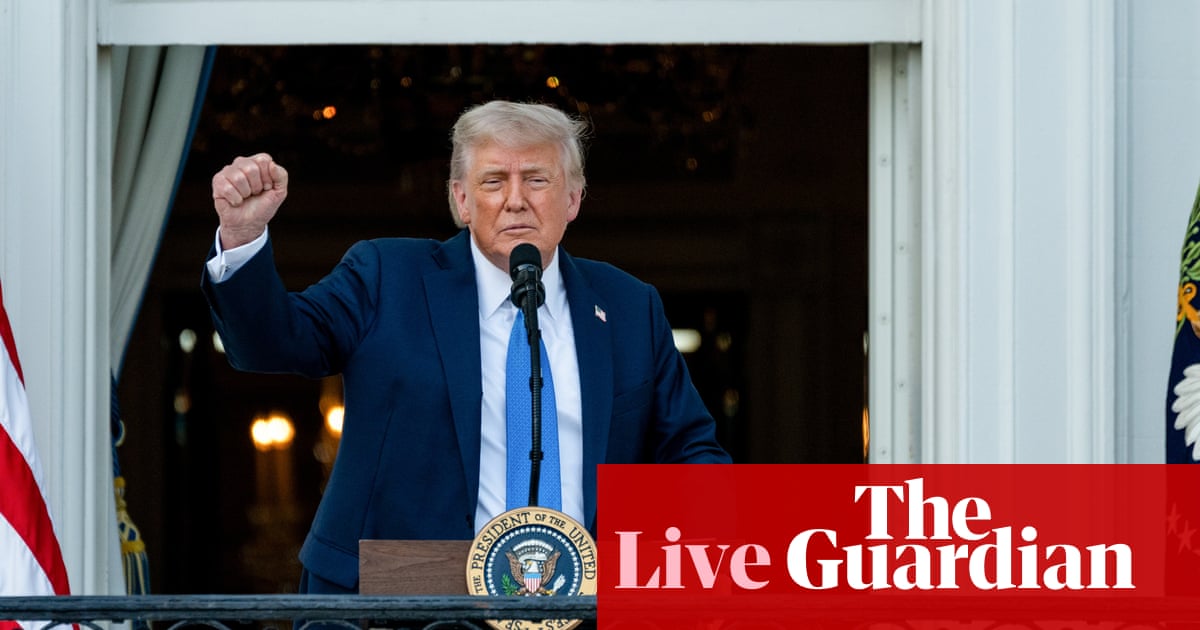President Donald Trump’s administration is pushing Serbia and other Balkan countries to take in the migrants deported from the US, Bloomberg News reported on Thursday.
The outletreported:
Nearly five months into his second term,Donald Trumphas announced a new sweeping travel ban that could reshape the US’s borders more dramatically than any policy in modern memory.
The restrictions, revealed through a presidential proclamation on Wednesday, would target citizens from more than a dozen countries – creating a three-tiered system of escalating barriers to entry.
The proclamation represents one of the most ambitious attempts to reshape the US’s approach to global mobility in modern history and potentially affects millions of people coming to the United States for relocation, travel, work or school.
Good morning, and welcome to our blog covering developments in US politics and Donald Trump’s administration as international aid groups and affected countries reacted to the sweeping orderbanning travel from 12 countriesand restricting visitors from seven others, with claims that it will sow division and vilify communities.
The nationals of Afghanistan, Myanmar, Chad, Republic of the Congo, Equatorial Guinea, Eritrea, Haiti, Iran, Libya, Somalia, Sudan and Yemen will be “fully” restricted from entering the US, according to the proclamation. Meanwhile, the entry of nationals of Burundi, Cuba, Laos, Sierra Leone, Togo, Turkmenistan and Venezuela will be partially restricted.
In a video released on social media, Trump tied the new ban toSunday’s terror attack in Boulder, Colorado, saying it underscored the dangers posed by some visitors who overstay visas.The suspect in the attack is from Egypt, a country that is not on Trump’s restricted list. The Department of Homeland Security says he overstayed a tourist visa.
“This policy is not about national security – it is about sowing division and vilifying communities that are seeking safety and opportunity in the United States,” said Abby Maxman, president ofOxfamAmerica.
Few of the affected countries have so far responded but Somalia immediately pledged to work with the US to address security issues. “Somalia values its longstanding relationship with the United States and stands ready to engage in dialogue to address the concerns raised,” Dahir Hassan Abdi, the Somali ambassador to the United States, said in a statement.
Meanwhile, the Venezuelan interior minister, Diosdado Cabello, a close ally of president Nicolas Maduro, described the US government as fascist and warned Venezuelans of being in the US.
We’ll be covering all the developments in this story and you can read our report here:
In other news:
Donald Trump has ordered an investigation intoJoe Biden’sactions as president, alleging top aides masked his predecessor’s“cognitive decline”. The investigation will build on a Republican-led campaign already under way to discredit the former president. Biden issued a statement dismissing the idea of a cover-up as “ridiculous”.
German ChancellorFriedrich Merzis set to meet with Trump on Thursday, hoping to build a personal relationship despite discord over Ukraine and the threat of a trade war. The president is due to greet Merz at 11.30am EST.
Trump is committed to passing his so-called “big beautiful” tax bill in the US Senate despite opposition from billionaire ElonMusk, a White House official said on Wednesday. The official, speaking to Reuters on condition of anonymity, added that the White House will not consultMuskon every policy decision. Estimates say that the bill could add $2.4trn to the deficit. Musk has stepped up attacks on the bill on X, urging supporters to “Call your Senator, Call your Congressman, Bankrupting America is NOT ok! KILL the BILL.”
